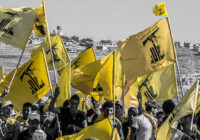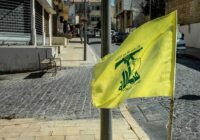Hariri’s risky resignation constitutes a Saudi-inspired bid to counter Iranian influence in the Middle East.
The proof will be in the pudding when Lebanese Prime Minister Saad Hariri returns home in the coming days to a country in which friend and foe have rallied around him and he clarifies whether he intends to follow through on his controversial decision to resign. Few in Lebanon and beyond believe that Hariri, a dual Lebanese-Saudi citizen whose family company in the kingdom declared bankruptcy earlier this year in one of the first casualties of Saudi Arabia’s fiscal crisis, voluntarily stepped down on November 4 while on a trip to Riyadh.
Hariri’s subsequent interview on his own Lebanese television station did little to erase suspicion that Saudi Crown Prince Mohammed bin Salman forced him to resign in an opening bid to counter Hezbollah, the Iranian-backed Shia militia that constitutes one of Lebanon’s most formidable political forces. Hariri warned that Saudi Arabia and its allies could ride roughshod on Lebanon’s economy by imposing sanctions and expelling hundreds of thousands of Lebanese employed in the kingdom.
The fact that Hariri said he would leave his wife and children in the kingdom when he returns to Beirut will reinforce suspicion of Saudi arm twisting should he, once back in the Lebanese capital, move forward with his resignation.
Further calling into question Hariri’s independence were reports that Khalid al-Tuwaijri, the head of the late King Abdullah’s court who was among scores of princes, officials and businessmen arrested earlier this month on corruption charges, had illicitly paid the Hariri family company $9 billion.
Rumors that Prince Mohammed’s leverage over Hariri involves the prime minister potentially being sucked into the crown prince’s power grab, executed under an apparent anti-corruption campaign, were reinforced by the fact that the fate of one of Hariri’s closest Saudi business associates, Prince Abdul Aziz bin Fahd, remains unclear. A son of the late King Fahd — whose immediate relatives were one target group in the selective anti-corruption purge — Prince Abdul Aziz was first reported to have been put under house arrest during a crackdown in September when scores of Islamic scholars, judges and activists were arrested. It remains unclear whether he is still under house arrest or has been transferred to Riyadh’s gilded prison in the Ritz Carlton Hotel.
Saad Hariri: Caught in a Catch-22
As Lebanon’s foremost Sunni politician, Hariri was widely credited with keeping the government — in which Hezbollah is represented — together and ensuring that the country remained on the sidelines of the Syrian war, despite Hezbollah fighting alongside Syrian government forces and more than a million refugees spilling into the country.
Hariri announced his resignation a day after meeting in Beirut with Ali Akbar Velayati, a senior advisor to Iranian spiritual leader Ayatollah Ali Khamenei. The prime minister’s office said he had urged Iran to halt its support of the Houthis as a first step toward ending the war in Yemen. Hariri denied Velayati’s assertion that the prime minister had offered to mediate between Saudi Arabia and Iran.
In his resignation speech on Saudi television, Hariri uncharacteristically dropped his effort to maintain a modicum of unity in Lebanon by echoing Saudi allegations that Iran and its surrogate, Hezbollah, were attempting to sow unrest and instability in the Arab world.
Hariri may well have been caught in a catch-22 with Saudi Arabia and more hardline Lebanese Sunnis demanding that he take a firmer stand toward Hezbollah and other Shia groups that insist Lebanon normalize relations with the government of Syrian President Bashar al-Assad. Lebanon minimized contact with Assad as part of its effort to disassociate itself from the conflict in Syria.
Reporting from the northern Lebanese city of Tripoli, one of the country’s poorest urban centers that is home to both Sunnis and Shias, journalist Sunniva Rose described how some hardliners, supporters of former Justice Minister Ashraf Rifi — who resigned earlier this year in protest against Hezbollah’s domination of politics — were putting up posters with portraits of Rifi and Prince Mohammed.
 The risk for the Lebanese is that they will pay the price for Saudi efforts to counter Iranian influence in the Middle East that is being fought on their backs. Saudi Arabia exploited Hariri’s resignation, with Gulf Affairs Minister Thamer al-Sabhan declaring two days later that the Lebanese government would “be dealt with as a government declaring war on Saudi Arabia” because of Hezbollah. Sabhan warned that “there are those who will stop (Hezbollah) and make it return to the caves of South Lebanon,” the heartland of Lebanon’s Shia community. “Lebanese must all know these risks and work to fix matters before they reach the point of no return,” he went on to say.
The risk for the Lebanese is that they will pay the price for Saudi efforts to counter Iranian influence in the Middle East that is being fought on their backs. Saudi Arabia exploited Hariri’s resignation, with Gulf Affairs Minister Thamer al-Sabhan declaring two days later that the Lebanese government would “be dealt with as a government declaring war on Saudi Arabia” because of Hezbollah. Sabhan warned that “there are those who will stop (Hezbollah) and make it return to the caves of South Lebanon,” the heartland of Lebanon’s Shia community. “Lebanese must all know these risks and work to fix matters before they reach the point of no return,” he went on to say.
Prince Mohammed, in a gesture, toward Lebanese Christians and an effort to project Saudi Arabia’s transition to what he described as an undefined form of moderate Islam, received Lebanon’s Maronite Christian patriarch, Bechara Boutros al-Rai, on November 14. The patriarch met separately with Hariri. Sporting a big cross on his chest in a country that bans expressions of non-Muslim religions, Rai’s visit constituted a rare occasion on which the kingdom welcomed a non-Muslim religious dignitary. He was the first Lebanese public figure to visit Saudi Arabia since Hariri’s resignation.
Lebanon’s political elite, including the prime minister’s Future Movement and Hezbollah, beyond rallying around Hariri, has called for calm and sought to ensure that the political crisis does not destabilize the country further or, even worse, constitute a prelude to its descent into renewed sectarian strife.
The elite, as well as many ordinary Lebanese, fear that their country has become the latest pawn in a Saudi-Iranian proxy war that has primarily been at the expense of others. Saudi efforts to counter Iran’s expanding influence in the Middle East sparked the kingdom’s ill-fated military intervention in Yemen in 2015, which has had devastating humanitarian consequences. Iranian and Saudi intervention in Syria — alongside many others — aggravated the bloodshed in a brutal six-year-long civil war.
Hariri’s risky resignation constitutes a Saudi-inspired bid to deprive Iranian influence of the legitimacy conveyed upon it by being part of the Lebanese government.
Speaking in Paris, Lebanese Foreign Minister Gebran Bassil insisted that “Lebanon would like for its decisions to be taken freely. Lebanon creates its internal and foreign policy with the will of its people and its leaders who are elected by the people. … Once Hariri is back in Lebanon he can take any decision he sees as right and possible.”
The views expressed in this article are the author’s own and do not necessarily reflect Fair Observer’s editorial policy.
Photo Credit: Kremlin
Support Fair Observer
We rely on your support for our independence, diversity and quality.
For more than 10 years, Fair Observer has been free, fair and independent. No billionaire owns us, no advertisers control us. We are a reader-supported nonprofit. Unlike many other publications, we keep our content free for readers regardless of where they live or whether they can afford to pay. We have no paywalls and no ads.
In the post-truth era of fake news, echo chambers and filter bubbles, we publish a plurality of perspectives from around the world. Anyone can publish with us, but everyone goes through a rigorous editorial process. So, you get fact-checked, well-reasoned content instead of noise.
We publish 2,500+ voices from 90+ countries. We also conduct education and training programs
on subjects ranging from digital media and journalism to writing and critical thinking. This
doesn’t come cheap. Servers, editors, trainers and web developers cost
money.
Please consider supporting us on a regular basis as a recurring donor or a
sustaining member.
Will you support FO’s journalism?
We rely on your support for our independence, diversity and quality.






